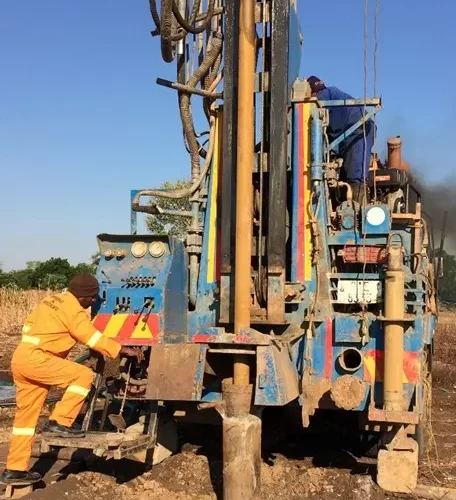
Our Location
Taifa Burkina, Accra-Ghana

Call Us
+233 24 802 6236

Working Time
Mon-Sat: 8:00-18:00

Borehole drilling is a crucial method used to access underground water for domestic, agricultural, and industrial purposes. It involves drilling deep into the earth to reach groundwater sources, providing a reliable and sustainable water supply, especially in areas where surface water is scarce.
Reliable Water Supply
Boreholes provide a consistent and independent water source, reducing reliance on municipal water systems.
Cost-Effective in the Long Run
Although the initial installation cost can be high, boreholes significantly reduce water bills and provide long-term savings.
Eco-Friendly
Groundwater is a natural resource that requires no chemical treatment, making it a more environmentally friendly option.
Increases Property Value
Properties with boreholes tend to have higher value as they offer a self-sufficient water supply.
Ideal for Agriculture and Industry
Boreholes support irrigation for farming and provide essential water for industrial operations.
Site Survey and Assessment
Experts conduct geological surveys to determine the best drilling location based on water availability and soil composition.
Drilling the Borehole
A drilling rig is used to penetrate the ground and reach the underground water source.
Casing and Installation
A casing pipe is inserted into the borehole to prevent collapse and contamination.
Water Pump Installation
A submersible pump is installed to extract water efficiently.
Water Testing and Treatment
Water quality tests ensure the water is safe for consumption, and necessary treatment is applied if needed.
Borehole drilling is a practical and sustainable solution for water supply, especially in regions facing water shortages. With proper installation and maintenance, a borehole can provide clean water for decades, making it a worthwhile investment for homes, farms, and businesses.